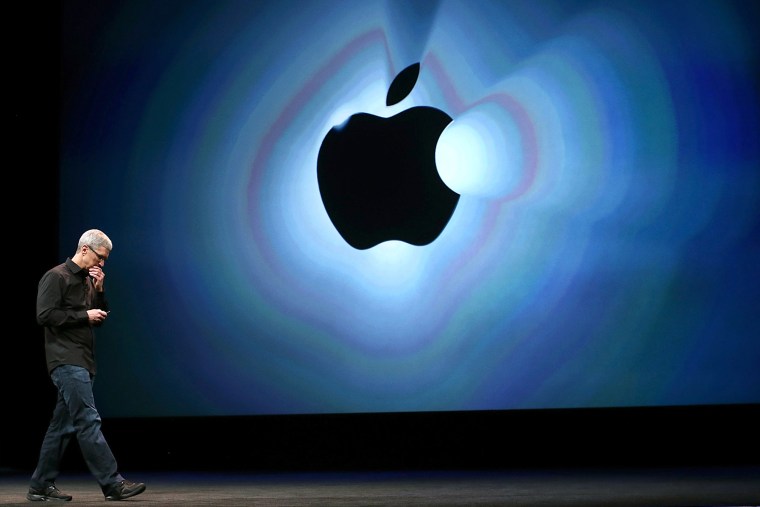The war of words between Apple Inc. and the government continued Sunday as FBI Director James Comey said forcing Apple to help unlock the iPhone of one of the San Bernardino shooters is no big deal.
"We don't want to break anyone's encryption or set a master key loose on the land," Comey said in a statement Sunday night, insisting that vital decisions involving safety from terrorists shouldn't be left in the hands of "corporations that sell stuff for a living."
A federal judge last week ordered Apple to help investigators gain access to encrypted data on the iPhone 5c used by Syed Rizwan Farook, who with his wife, Tashfeen Malik, killed 14 people in San Bernardino, California, on Dec. 2.
Not even Apple can decrypt the encrypted iPhone, according to the company. What investigators want it to do is help them figure out Farook's password so they can simply unlock the phone — but they fear that it has a common feature that wipes the data completely after a certain number of failed password entries.
Apple said it wouldn't comply, arguing that helping the government unlock an encrypted phone would sabotage the entire point of encryption and endanger the privacy of millions of its customers.
Since then, the company and federal authorities have lobbed strongly worded statements at each other. Here's how the battle has played out:
- WEDNESDAY: Apple Chief Executive Tim Cook says the order would force the company "to build a backdoor to the iPhone" and that "no reasonable person would find that acceptable."
- THURSDAY: Google Chief Executive Sundar Pichai weighs in on Apple's side, tweeting that helping the FBI try to get into the Farook's phone would sabotage the security of "tens of millions of American citizens."
- FRIDAY: Republican presidential front-runner Donald Trump adds his 2 cents' worth, calling for a boycott of Apple unless it helps the FBI.
- FRIDAY: Prosecutors file a motion seeking to force Apple's compliance, writing in court documents that Apple shouldn't be allowed to "design and market its products to allow technology, rather than the law, to control access to data" found by a court to be important to an critical investigation.
- SATURDAY: The FBI lays out in a statement more detail on why it needs Apple's help. It says that investigators were able to gain access to data Farook backed up to his iCloud account — but that Farook stopped backing up his phone in October, well before the December shootings. "Since the iCloud backup does not contain everything on an iPhone," they said, investigators' "objective was, and still is, to extract as much evidence as possible from the phone."
- SUNDAY: Comey tries to downplay the dispute, arguing in his new statement that no precedent would be set if Apple would just go along.
"I hope folks will take a deep breath and stop saying the world is ending, but instead use that breath to talk to each other," he said.
"We simply want the chance, with a search warrant, to try to guess the terrorist's passcode without the phone essentially self-destructing and without it taking a decade to guess correctly."
This article originally appeared on NBCNews.com.
